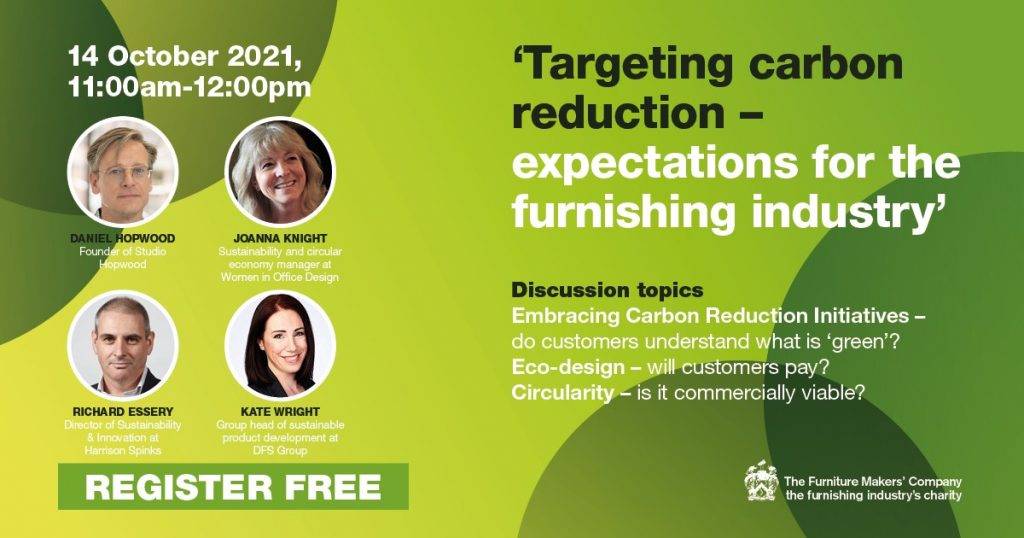News
Harrison Spinks’ director of sustainability and innovation added to carbon reduction webinar panel
Richard Essery, director of sustainability and innovation at fifth generation bed and mattress manufacturer Harrison Spinks, has been added to the line-up of experts speaking at The Furniture Makers’ Company’s webinar on sustainability next week.
The webinar, ‘Targeting carbon reduction – expectations for the furnishing industry’, will be broadcast for free on Zoom on Thursday 14 October at 11:00am. Richard will join fellow panellists Daniel Hopwood, founder of Studio Hopwood; Joanna Knight, sustainability & circular economy manager at Women in Office Design; and Kate Wright, group head of sustainable product development at DFS Group.
Harrison Spinks has recently bolstered its sustainability credentials by launching a dedicated recycling plant and unveiling its first ever annual sustainability report. The company has pledged to reach net carbon zero by 2023 through its focus on ethical and sustainable circular design.

Richard Essery, director of sustainability and innovation, said: “I’m delighted to be chosen as one of the panellists to speak on such an incredibly important topic. At Harrison Spinks, every decision we make is rooted in sustainability, and it’s great to share my knowledge alongside these industry experts on how we can all come together in the furnishing industry to target carbon emissions, along with the further challenges we are all facing to help save the planet.
“We need to identify opportunities for the industry to improve its environmental standards and I’m eager to share ideas on how retailers and consumers can contribute to this climate crisis.”
Peter Holland, principal at Linear Structure who will host and chair the discussion, said: “I’m very excited to be hosting this event with such an engaging panel with some fresh perspectives on sustainability for the commercial world. Register now to save your spot.”
The topics being discussed at the webinar will be:
Embracing Carbon Reduction Initiatives – do customers understand what is ‘green’?
Do customers know what is genuinely ‘green’? Should ‘eco’ credentials be clearer with greater uniformity on certification?
Eco-design – will customers pay?
There is increasing emphasis on product design to improve reuse and recycling potential, durability to maximise useful life, availability of spares and components and use of more environmentally sensitive materials. How should manufacturers communicate a clear message of ‘added value’ and customer benefits?
Circularity – is it commercially viable?
The retail sector appears to be leading the race on circularity through introductions from retailers with ‘furniture as a service’ offerings. Are the schemes, including ‘take back’ options, commercially viable and will they be widely adopted?